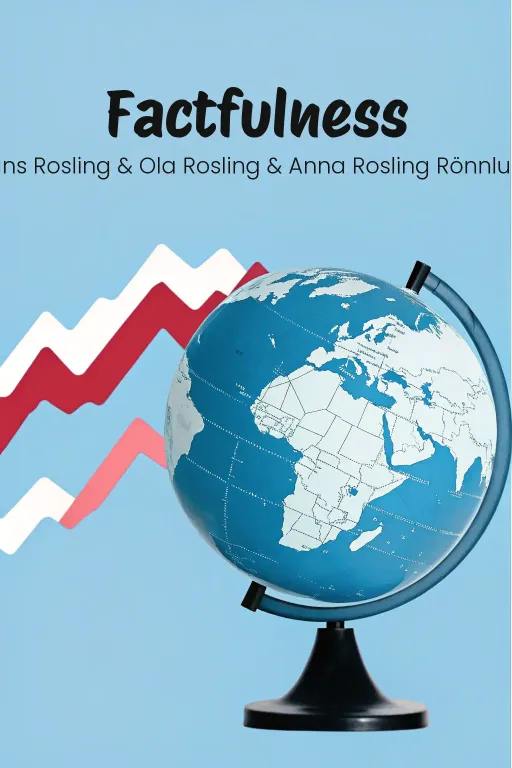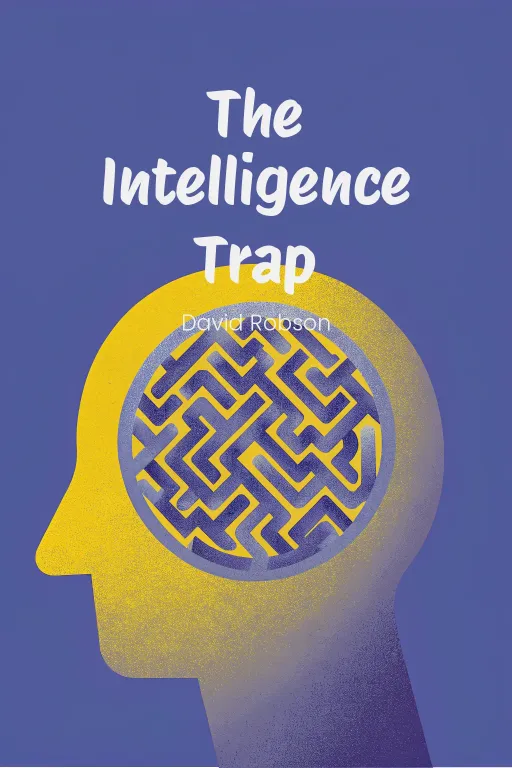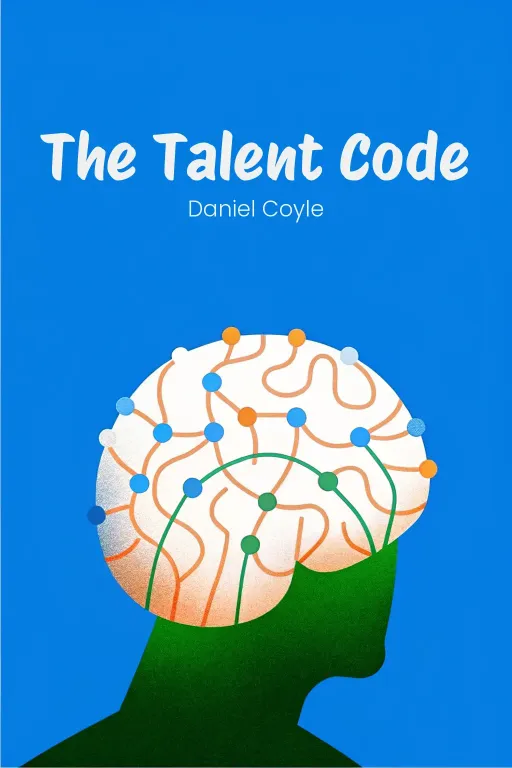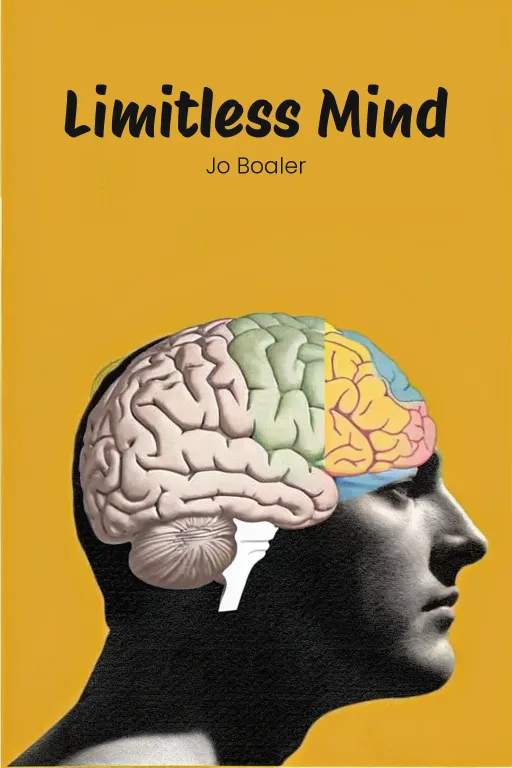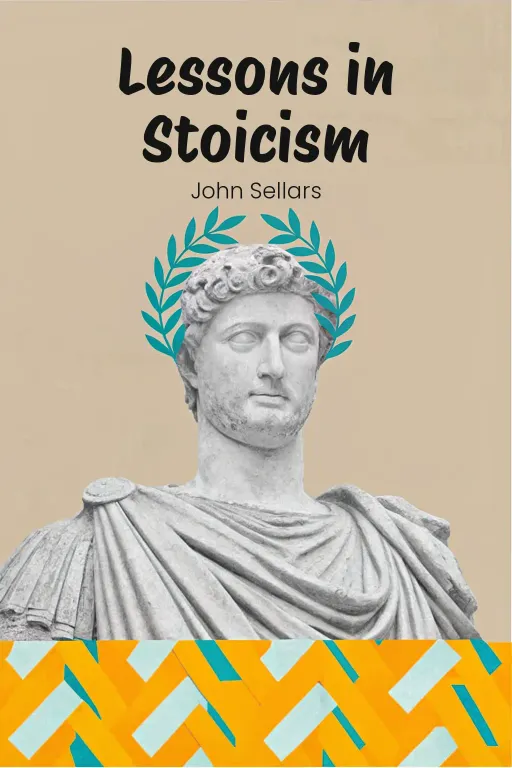
Global Classrooms: What Makes Schools Great?
Podcast by Chasing Sparks with Alex and Justine
And How They Got That Way
Introduction
Part 1
Alex: Hey everyone, welcome back! Today we're tackling something that touches every single one of us: education. Whether you're a parent, a student, a teacher, or just someone who cares about the future, here's the big question: Why do some countries seem to “nail” education, while others, like the U.S., seem to constantly struggle? Justine: Exactly! I mean, the U.S. spends a fortune on its schools, right? But the results? Let's just say they're not exactly world-class. Meanwhile, you've got places like Finland, South Korea, and Poland just knocking it out of the park. So, what gives? What's their secret sauce? And the million-dollar question – can we actually use any of this stuff here, or are we just too fundamentally different? Alex: That’s where Amanda Ripley’s book, The Smartest Kids in the World, comes in. She follows American exchange students who spent time in high-performing countries. Through their eyes, Ripley explores everything from how teachers are trained to why some nations really embrace the challenge, while others kind of shy away from it. It’s a sharp critique of our system, and also a roadmap outlining what real change could actually look like. Justine: Yeah, and while Ripley paints an inspiring picture, there are some tough pills to swallow, let's be honest. You're going to hear a lot about teacher quality today – spoiler alert: Finland's teachers are basically the Navy SEALs of education – along with the almost crazy intensity of South Korea's hagwon culture, and the remarkable transformation that lifted Poland's schools from pretty mediocre to seriously top-tier. I still have my doubts about some of it, but the facts are pretty compelling. Alex: So, we've broken it down into three key areas. First, we’re diving deep into teacher quality, because, frankly, no education system can be better than its teachers. And Finland? Well, they've definitely set the gold standard there. Justine: Then, we'll unpack the cultural values that are really driving success. I wonder, why is South Korea so obsessed with academic rigor? And how does Finland get such great results without completely burning out their students? Alex: And finally, we’re going to examine Poland – a country that proves that you can overhaul a system to be both academically challenging and fair. It’s a really powerful example of what's possible when you get the right policies and priorities aligned. Justine: So, buckle up, folks. We're going on a little global tour of education success stories, hopefully with some smart skepticism and debate along the way. Ready to get started, Alex?
Teacher Quality and Professionalism
Part 2
Alex: Okay, let's pick up where we left off and dive into the heart of any education system: teachers. And I’m not just talking about warm bodies in the classroom, right? Teacher quality and professionalism—these aren't just trendy phrases, they're what makes or breaks the whole thing. Look at Finland! Their whole approach, from how they select teachers to how they train them, is just on another level. Justine: Exactly! Finland doesn’t just let anyone waltz in and start teaching. They’re not sifting through applications thinking, "Got a degree and a heartbeat? You’re hired!" No, it's more like applying to a top med school or even joining NASA! Alex: Seriously! Teaching in Finland is a highly respected profession, and how they select people reflects that. Some of their teacher training programs have acceptance rates as low as 10%. I mean, that’s tougher than getting into MIT! And that kind of exclusivity “really” sets the tone from the start. If you get in, you’ve basically proven you’re among the best. Justine: And it's not just about filtering people out at the beginning, right? Once you're in, it's like academic boot camp, isn't it? Alex: Totally! Every aspiring teacher in Finland has to get a master’s degree. And it’s not just about reading textbooks and memorizing theories. It’s a “really” immersive, research-based program where they learn about how to teach, alongside “really” in-depth knowledge of what they're teaching. And then comes the practical stuff, which they treat like a medical residency. Future teachers spend a whole year in the classroom, not just watching, but actually teaching under the guidance of mentors. Justine: A whole year. Compared to the U.S., where we give student teachers, what, maybe three months of student teaching if they’re lucky? And the quality of those experiences can vary wildly. Sometimes, it's just sink or swim with minimal feedback, isn't it? Alex: It’s a huge difference, and you can clearly see it in how prepared Finnish teachers are when they enter the classroom. That year-long residency, it's not just about getting practice—it's about being intentional and methodical. Trainees get to experiment, make mistakes, and figure out how to handle all sorts of students and situations. So by the time they’re certified, they're walking into the classroom with solid experience, real confidence, and a clear idea of what their role is. Justine: And here’s what “really” gets me: After all of that, they still give teachers more freedom than we can even imagine. Finnish teachers aren’t following some rigid curriculum handed down from on high. They actually get to decide how to teach, what materials to use. It's like, "We trust you. Go make some magic happen." Alex: That’s one of Finland’s most powerful ideas. Because they carefully select and thoroughly train their teachers, they trust them as professionals. And that independence translates into much more creative, adaptable teaching that “really” meets the diverse needs of the students. Justine: Okay, let me play devil’s advocate for a sec. All that autonomy sounds amazing, but does it mean there's no accountability? What keeps a teacher from just phoning it in? Alex: Trust is the other side of the coin, right? Finnish teachers have freedom, yes, but they’re also part of a professional community. They have support from their colleagues, they’re constantly learning, and they actually have time to focus on getting better at what they do. Besides, why would they slack off when the whole system—from the respect they get to the competitive salaries—makes teaching a “really” rewarding profession? Justine: Okay, fair enough. And that's something we're missing here in the U.S. Respect. Here, teaching has become...Let's just say it's not synonymous with prestige. Take Oklahoma, for example. You've got people entering the field with, let's be honest, pretty minimal qualifications. There’s that Scott Bethel case, who admitted he became a teacher more for the chance to coach football than out of any passion for math or teaching. Alex: And his teacher prep program wasn’t exactly stellar. It had easy admissions, pumped out too many unqualified people, and didn’t “really” prepare them for the classroom. Bethel’s experience “really” highlights a systemic issue. When we don’t set high standards for who becomes a teacher or how we train them, the students are the ones who pay the price. Justine: And let's be “real”, too. Lots of school districts in the U.S. hire underqualified teachers because they're desperate. When you've got high turnover and not enough qualified people applying, what else are you going to do? You end up prioritizing quantity over quality. Alex: Exactly. It’s the complete opposite of Finland’s approach, where they focus on a smaller number of candidates, but invest a lot in their training. They understand that one well-trained, “really” motivated teacher can have a huge impact. Justine: And we can't forget the cultural piece here. In Finland, teachers are treated like VIPs. They're up there with doctors and lawyers—basically rock stars. Meanwhile, in the U.S., we're handing out "Teacher of the Month" mugs like that's going to solve everything. Alex: It’s not just about morale, though. It's about showing how much we value education as a society. If we treated teachers with the same respect Finland does, we’d attract a lot more top-tier talent. Justine: Which creates a virtuous cycle, right? Better candidates, better training, more respect, and then—boom—you've got teachers who aren't just filling a role but driving “real” learning. Instead, here, teaching often gets seen as a backup career, which “really” kills any ambition from the start. Alex: Exactly, and it’s an issue that feeds into itself. Finland shows us what’s possible when you prioritize teachers as the core of your system. But changing the U.S. to something similar wouldn’t be easy. It’s not just about improving teacher education—it’s about changing how we see education as a society. Justine: And let's not forget the huge structural challenges we face, like funding disparities, high turnover, and just the general resistance to change! So, while Finland’s model is something to aspire to, actually making it happen here would take a massive overhaul! Alex: That’s true, but it doesn’t mean we can’t start taking steps in the right direction. For one, we could make teacher training programs stronger, raise the bar for who gets in, and invest more in mentoring new teachers. It’s about being committed and consistent. Justine: That's a good point. Improving teacher quality won’t happen overnight, but if there’s one big takeaway here, it's this: You can’t have great schools without great teachers. Alex: Exactly! Teacher quality isn’t just something to check off a list—it’s the foundation of the whole education system. Without it, everything else falls apart.
Cultural Values and Educational Rigor
Part 3
Alex: So, after talking about teacher quality, it's natural to move on to how culture and structure shape our schools, right? Let's dive into the cultural values that “really” drive academic intensity. Justine: Exactly! We're not just talking about lesson plans here. What are the underlying expectations, the societal norms, the parental priorities? That's what “really” shapes what and how students learn. Think South Korea and Finland – totally different worlds. Justine: Let's start with South Korea, that "pressure-cooker" environment. It's intense, right? Alex: You're not kidding. It's a system fueled by sky-high expectations, where academic success is linked to upward mobility and even family honor, and that’s why you see things like "hagwons.” These after-school academies are practically a second school for students. Justine: Right, hagwons. The scale of it is mind-blowing. Parents drop, like, $18 billion a year on those. That's dedication...or maybe desperation? Alex: It’s both, probably. It's financial strain, but also a huge emotional toll on students and their families. They spend crazy hours there after a full school day. I heard one exchange student, Eric, mention that his Korean classmates were constantly exhausted, even falling asleep in class. Justine: Exactly, and Eric's point was, they're not just chasing As, they're fighting for survival. The system equates test scores with their worth and future prospects. It's like the Olympics, but only the gold medal counts. Alex: Totally. And for many families, success isn’t “really” optional. A prestigious university is seen as the golden ticket to status and economic security. So parents invest everything, even if they're driving themselves and their kids into the ground. Justine: And that's where things start to fall apart, right? They might top the PISA charts, but at what cost? Anxiety, depression, burnout before adulthood... Alex: Exactly! The focus is so intensely on performance that personal well-being and creativity often get sidelined. Rigor becomes synonymous with sacrifice, and failure feels catastrophic. Justine: It makes you wonder, how do you even find a balance there? Is balance even possible in that kind of high-stakes environment? Alex: That's where the discussions about reform come in. South Korean leaders are realizing that this model, no matter how effective it seems on paper, isn't sustainable. Now, there’s a growing movement to prioritize creativity, emotional health, without losing academic rigor entirely. Justine: Okay, but then you have Finland, which is basically the anti-South Korea, it seems. They've somehow managed to have academic success and happy kids. What's their secret? Alex: Finland prioritizes equity, balance, and the joy of learning. Their students are some of the happiest in the world, and they still kill it on PISA tests. How awesome is that? Justine: So, no hagwons then, I assume? Alex: Definitely not. To start, they don't do standardized testing until the very end of a student’s education. This “really” lets kids learn, develop critical thinking and problem-solving skills, instead of constantly studying for exams. Justine: That's a completely different mindset. They're thinking, "Let's teach them how to think," not just "Let’s drill the test material." Alex: Exactly. It's more about fostering intellectual curiosity than prepping for tests. And this shows in classrooms. Another exchange student, Kim, told me that when she was struggling with the language barrier, her teacher didn't rush her, instead, her teacher created an inclusive learning environment tailored to her needs. Justine: That's a stark contrast. You know, in South Korea, Kim might've been sent to three different hagwons for extra help. Alex: True, but the Finnish system tries to avoid that pressure by focusing on equity. Schools are funded equally, so you don't have that huge divide between the haves and have-nots. And, they have one of the lowest rates of students repeating grades among these developed countries. Justine: But here's what I find mind-blowing. Finnish students aren't stressed out, teachers aren't micromanaged, and the system still produces great results. It's almost unbelievable. Alex: It all comes back to their core values. Finland values balance—not just academic rigor, but also student well-being and satisfaction. The belief is that education should enrich a person's life, not diminish that. Justine: And their system reflects that. It prioritizes creativity, critical thinking, and collaboration. So there's high standards, without the grind. Rigor without rigidity. Alex: Exactly. But their success didn’t happen overnight. Finland's reforms were gradual, methodical, and rooted in values that promote equality and student agency. Justine: So when you compare Finland and South Korea, the “real” question is: Can you take the best parts of each? The drive of South Korea, the balance of Finland? They're like opposite ends of the spectrum, each with its own lessons. Alex: Right! How can education systems around the world balance high standards with genuine care for students? South Korea and Finland are two extremes. The challenge is finding the sweet spot that works within the unique cultural context. Justine: A challenge, sure, but not an impossible one though, I believe that. We've seen how policy shifts and changes in societal values can “really” turn things around. Alex: Absolutely. Both South Korea’s intensity and Finland’s balance show that education is about more than just systems, it's about the people they serve. Our goal should be to prepare students for both success and a fulfilling life, shouldn't it?
Systemic Reforms and Equity
Part 4
Alex: We've been talking about cultural values, but now let’s zoom in on systemic reforms and how we can actually measure their impact. Take Poland's educational transformation, for example. This brings us to systemic changes and equity, a crucial piece in understanding how countries like Poland and Finland have not only boosted educational outcomes but also tackled inequality head-on. Justine: Exactly. And what I appreciate about this is that it moves past just blaming culture. It’s not just about long-held traditions, it’s about real, tangible policy decisions. Structural choices that change what’s considered fair, who gets ahead, and how. Poland’s story is fascinating because they didn't become an education success story overnight. Alex: Precisely. Poland's experience “really” highlights how targeted systemic reforms, like delaying when students are sorted into academic tracks, can reverse deeply rooted inequalities while spurring meaningful progress. Let's go back to the year 2000 when their education system was, quite frankly, struggling. The old model sorted kids into vocational or academic paths as early as age thirteen, which “really” just reinforced existing social divisions. Justine: Right, and you can just picture how that went down. If you were a kid from a rural area or a working-class family, you were pretty much pushed into the vocational track where your opportunities became significantly limited. The data showed a pretty bleak picture, where two-thirds of those vocational students struggled with “really” basic things like literacy. Alex: Then came the turning point. Poland delayed tracking until students were sixteen, so everyone stayed in comprehensive schools for three extra years. That seemingly small change “really” had a big impact. Those extra years empowered disadvantaged students, giving them more time to gain important skills and benefit from the same high expectations as their peers. Justine: And it's not just about delaying the tracking, but about raising expectations for all students during that time. The message was clear: we're not writing anyone off early. Everyone gets a fair shot before we start specializing. That's huge. Alex: Right. Almost immediately, the results started showing. By 2003, just three years after implementing these reforms, Poland started to climb the PISA rankings. By 2009, they were actually outperforming countries with far more wealth. More importantly, they managed to narrow the gap between the students who performed the best and those who struggled the most, which is a “really” good sign of systemic equity. Justine: But here’s where Poland’s story gets interesting. Once students turned sixteen and tracking started again, some of those gains started to fade, especially in vocational programs. Students' motivation dropped, performance stalled, and inequality started to creep back in. Alex: That's a good reminder that reforms aren't a one-time fix. Delaying tracking made a big difference, but keeping equity sustainable requires constant adjustments. Poland's example shows us that even well-intentioned policies need to evolve to address any unintended consequences. Justine: Exactly. Which makes me think of Finland again, where the system seems designed to avoid those kinds of problems. Like Poland, Finland delays tracking until sixteen, but they also give equal importance and funding to vocational education. You're not punished for choosing a different path. Alex: And that’s such an important point. Finland understands that equity isn’t just about starting on the same level; it's about making sure all pathways, whether academic or vocational, lead to real opportunities. Compare that to other places where vocational education is often seen as less valuable. Justine: And Finland goes beyond just delaying tracking. Their whole approach is centered around fairness. Look at how they spend on resources. Schools in poorer neighborhoods get more money and support to create a level playing field. That’s not just systemic equity, but systemic empathy too. Alex: It is, and that’s reflected in the results. Finnish schools consistently show some of the smallest gaps between wealthy and low-income students in the world, and they do it without sacrificing high standards. It proves that equity and high performance can actually go hand-in-hand. Justine: Plus, Finland’s approach to special education goes even further. About half of the students get individualized support at some point, but it’s part of the classroom, not isolating. It’s like they've turned “special education” into just giving everyone the help they need. Alex: Right, and that inclusive approach works! One great example of this is when Kim, an American exchange student, was struggling with Finnish because it wasn't her first language. Instead of punishing her or sending her to remedial classes, the teacher adapted and gave Kim a children’s book that matched her current reading level. That thoughtful solution made sure Kim could still participate and learn. Justine: Now, compare that to the U.S., where different ability levels often mean separating students. You have gifted programs over here, remedial classes over there. Finland shows us that when everyone stays together and gets the support they need, it creates stronger students overall. Alex: Which brings us back to the bigger picture we see in both Finland and Poland: systemic equity isn't about lowering expectations. It's about helping everyone reach high standards by giving those who are struggling the tools they need to succeed. Justine: But here’s my question: can systems like Poland’s and Finland’s even work in places like the U.S., where everything is so decentralized and resources are so unevenly distributed? It’s not like we can just magically give every school the same amount of funding or teaching quality. Alex: That’s definitely the big challenge. We don't have to copy their systems exactly, but we can still take meaningful steps forward. For example, delaying tracking in the U.S. could have an immediate positive effect, particularly for students from disadvantaged communities. Investing in better teacher training programs also feels achievable, even with our decentralized system. Justine: That’s a fair point. If Poland could go from a mismatched system to an equitable one that benefits everyone, it proves that big changes are possible. The trick is to be both ambitious and persistent. Alex: And vigilant. Keeping equity requires constant attention to make sure the gains don't slip away. Whether it's how we allocate resources, create tracking policies, or fund vocational programs, equity isn’t a one-time deal. It’s something we have to constantly work at. Justine: Well said. Poland and Finland might have taken different paths, but they both teach us the same thing: when systems prioritize fairness along with high standards, the results speak for themselves.
Conclusion
Part 5
Alex: Alright, so, to sum things up, we’ve really dug into those three key pillars of educational success from “The Smartest Kids in the World”, haven't we? The vital role of great teachers, how cultural values shape both academic drive and well-being, and also how systemic changes can actually close the gap on inequalities. Justine: Exactly. And looking at Finland, South Korea, and Poland, we've seen how different strategies can lead to wildly different outcomes. From Finland's focus on balancing fairness with high achievement, to South Korea's intense, high-pressure system, and Poland's emphasis, importantly, on equity as a catalyst for overall improvement. Alex: Absolutely. Each system gives us something to think about, but also reminds us that context is everything. What works in Finland, for example, can’t just be dropped into the U.S. and expected to work the same way. But, the core principles – professionalism, fairness, high expectations – those are universal. Justine: So, the real lesson here is that meaningful change isn't about blindly copying what others do. Instead, it involves understanding why certain approaches work in different places and then adapting those core principles to fit your own specific challenges. Alex: Precisely! It’s a challenge to really rethink education – not just in terms of test scores, but in terms of values. I mean, are we building systems that lift up all students, value our teachers, and equip young people for success both in school and in life? Justine: And for everyone listening—whether you're a policymaker, a teacher, or a parent—ask yourself: Where can you make a difference in your local schools? Whether that's by supporting teachers, rethinking the role of standardized testing, or delaying academic tracking, even small, focused changes can have a huge impact. Alex: Because, ultimately, it's not just about creating smart kids. It's about building a society of capable, curious, and compassionate people. And that starts with the kind of educational systems we create today for the students of tomorrow. Justine: Well said, Alex. Until next time, let’s keep asking the tough questions and demanding real answers.



